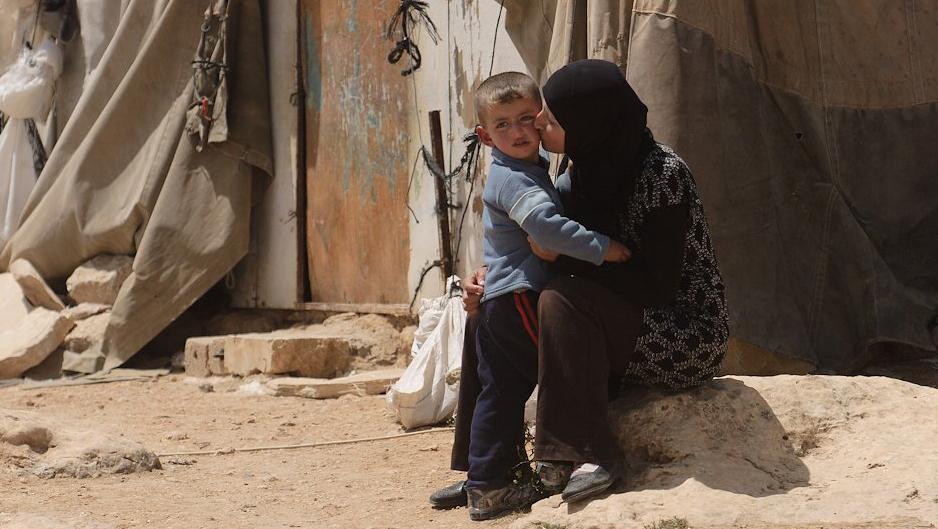
5 minute read
"Women Waging Peace: The Role of Women's Groups in Resisting Polarization and Extremism" by Meghan Hembruff
from The Observer XIX.2 - From the Other Side: Political Polarization in Today's World
by The Observer
In times of political contention and deepening divides, the loudest voices are those representing the most extreme views. However, though it appears our world is becoming more divided, it is vital to recognize the role of grassroots organizations in counteracting polarization with solidarity. The recent election of Benjamin Netanyahu in Israel adds to the growing trend of right-wing politics around the world. For a country experiencing one of the most enduring conflicts of the present day, the rise of right-wing leaders like Netanyahu dampens hope of any resolution in the short-term. However, despite deeply contentious political relations, united Palestinian and Israeli women's groups have joined together under a common cause to resist polarizing forces.
The rise of right-wing leaders around the world indeed suggests that persistent political polarization is part of a pattern of deepening ideological divide among the general public. While to some extent, the election of Netanyahu represents growing right-wing sentiments among voters, it would be too hasty to conclude that this shift in extremism is universally applicable to all members of society. In Israel/Palestine today, and elsewhere throughout history, growing extremism is confronted by efforts to resist such dividing forces. Those members of the public striving towards peace organize themselves and stand in opposition to extremism in unique and surprising ways.
Advertisement
Northern Ireland in the 1960s to the 1990s was characterized by violent religious conflict. Extremism prevailed, and hatred for the other side continued to drive divisions between Catholic and Protestant neighbours. Despite deep polarization, Catholic and Protestant women worked together to form the Belfast Women's Support Network. Collaboration between women from either side was based on shared goals of peace and ending poverty and violence. In these spaces, women put aside politicised differences and recognized commonalities in order to break down societal divisions. Women's groups around the world have played an important role in establishing solidarity in times of contention, and Israel/Palestine is no exception.
Dating back to 1993, Israeli women and Palestinian women have met to discuss opportunities for peace and advocated for equality and an end to violence for the Palestinian minority in Israel. This initial organization was known as the Bat Shalom (Daughter of Peace). Like the Belfast Women's Support Network, women from opposing sides were able to work together in a shared project for peace despite increasing political tension between their nations.
More recently two women's groups, an Israeli group called Women Wage Peace and a Palestinian group called Women of the Sun, have joined together to resist rising extremism. Women on both sides argue that the current violence poses a serious threat to their children's future. They have been able to unite under a shared goal of fostering peace negotiations and have urged the Israeli government to formulate a "bilaterally acceptable political agreement" to end the conflict. In early 2020, members of the two organizations met via Zoom and released a joint statement under the name "Four Million Mothers" - referring to the number of mothers living in Israeli and Palestinian territories. Their declaration, known as the Mothers Call states: "We, Palestinian and Israeli women from all walks of life, are united in the human desire for a future of peace, freedom, equality, rights and security for our children and the next generations.”
Throughout worsening tensions and increasing military action in the Gaza Strip this summer, the two groups continued to meet regularly and share their experiences with one another. In doing so, women from either side recognized that the prolonged fighting was not serving anyone, but rather resulted in numerous tragedies on both sides of the divide. In the fall of 2022, the Women Wage Peace Movement and the Women of the Sun Movement jointly embarked on a 'Month of Peace' in which the two organizations travelled throughout Israel/Palestine raising awareness for their campaign. The joint Mothers Call Movement has called upon both Israeli and Palestinian leadership to begin peace negotiations and provide a solution that recognizes the rights of all individuals living in Israel/Palestine. So, while the election of a right-wing party in Israel dampens hope for a resolution to the Israeli/Palestinian conflict, the persistence of women's grassroots organizations like the Mothers Call Movement serves as hopeful proof that not everyone reverts to extremism in times of contention. It is true that perhaps the general perception given by politicians or the media creates the image of a purely 'us versus them' type situation. These messages frame the two sides as vastly different from one another, so much so that conflict is seen as inevitable or necessary. Despite this deeply divisive rhetoric, some people have resisted polarization and established a sense of common ground between groups. Moreover, while political polarization persists, the beliefs and dreams of individuals from opposing sides are not as different as they may seem. In Israel/Palestine and elsewhere, grassroots organizations fighting for peace should serve not only as examples that solidarity is possible but further, need to be understood as powerful social forces with the capability of resisting polarization. Efforts by these groups demonstrate that in times when politicians and extremists are dividing us from one another and compelling us to think only of what makes us different, we can choose instead to resist these divisive forces and appreciate instead the ways in which we are alike.






